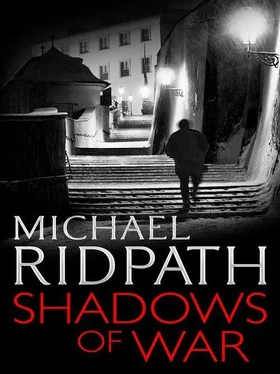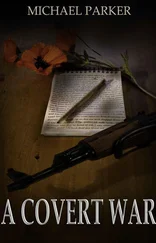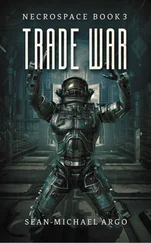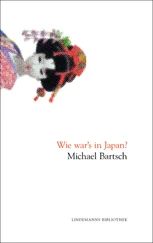There was no one around, and although at the top of the dunes she could see for miles, in the hollows she was sheltered from the wind and the sound of the surf.
Scrub encroached: gorse and stunted trees. First one bird and then another announced the dawn from deep within the bushes. The path she was following was not straight, but wound through the humps. She came to a narrow section where it plunged downhill with scrub on either side.
She heard rapid footsteps behind her and the sound of feet sliding on sand.
‘Theo?’
She turned.
She saw the knife and opened her mouth to scream.
No one heard.
November 1939
Bedaux International
Bungehuis, Spuistraat 210
Amsterdam
16 November 1939
Dear Sir Henry,
It is a few years since we met, but I remember that stimulating discussion over lunch with Baron von Schroeder and Pierre Laval at Banque Worms in Paris.
A mutual friend, with whom you have recently been in contact, suggested I get in touch with you. Gurney Kroheim has a venerable history of banking on the continent of Europe. I hope that some day my own firm will be able to emulate yours with a reputation in management consulting. Both our businesses rely on trade to thrive. This recent war is a disaster for trade.
Your former king the Duke of Windsor is an old friend of mine. You may recall that he and the duchess were married at my chateau. Like ourselves, the duke has a wide understanding of Europe. While there can be no more patriotic Englishman than him, he understands that his country’s best interests are not necessarily served by the slaughter of its youth on the battlefields of France.
These matters are sensitive, which is why I am sending this letter by hand. I should like to discuss the European situation and the duke with you face-to-face. I will be in London for a couple days at the end of next week and perhaps we could meet on the 23 rd? Please confirm care of Mrs ter Hart at Bedaux International in Amsterdam.
Sincerely yours,
Charles E. Bedaux
Kensington, London, 16 November
‘What the hell was Millie doing in Holland, Father?’
Conrad’s voice was quiet, but full of menace. They were in the library. There had been no invasion of Belgium the day before, no coup against Hitler. But there was other more immediate and far more shocking news. When he had arrived home from Heston Airport half an hour earlier, he was surprised to see his mother up in London from Somerset. One look at her face told him something was dreadfully wrong. It was. Millie had been murdered in Holland.
He hadn’t understood for a moment: there was no conceivable reason for Millie to be in the country he had just returned from; it must be some strange mix-up.
But it wasn’t. His mother’s face told him it wasn’t. And although the idea of Millie’s death still seemed unreal, a moment’s thought gave Conrad a possible reason.
Conrad hugged and comforted his mother, when all the time he just wanted to scream at his father. As soon as he decently could he insisted that he and his father withdraw to the library.
Lord Oakford looked shattered. Thin at the best of times, his face was drawn and wan, the lines that furrowed downwards from the corners of his mouth had become deep ravines. His eyes were dull. The empty arm of his jacket hung limply.
Millie was the second child he had lost; Edward, his eldest son and his heir, had died in a climbing accident on the slopes of Mont Blanc nearly ten years before. For a moment Conrad almost felt sorry for him, but his anger swept that thought away.
‘Well, Father?’
Oakford sighed. ‘She was there to see Theo,’ he mumbled.
‘Theo! Why Theo?’
‘She…’ Oakford couldn’t get the words out. A tear ran down his cheek.
‘I know. It was some hare-brained peace scheme, wasn’t it?’ Conrad said. ‘I refused to go, so you sent Millie along instead.’
Oakford nodded. ‘We wanted to open discussions with the plotters. So that if they did succeed in deposing Hitler, we could make peace. Theo was the conduit.’
‘How long had you been talking to him?’
‘Since the spring. Millie met him in Zurich in April. The conversations came to nothing then, but at least we had a line of communication.’
‘You know I saw Theo earlier this week? He didn’t say anything to me.’
‘We asked him to keep it quiet.’
‘So you, Millie and Theo were conspiring against me?’
‘We were just trying to bring peace. To stop this war before it kills a million people. It was a noble thing Millie was doing.’
‘That’s tosh! She was negotiating with the enemy behind her country’s back. You made her do it. And now she’s dead!’
Oakford hung his head and nodded.
‘How was she killed?’
‘She was stabbed in some sand dunes in Scheveningen. You remember. We went on holiday there once.’
‘Who killed her? Do you know? Was it the Germans? The Gestapo?’
Oakford took a deep breath and raised his eyes to his son. Conrad could tell it took courage for the man, who had become old before his very eyes, to do that, but he was not impressed.
‘I don’t know. She went with a companion, Constance Scott-Dunton. She’s a friend of Henry Alston. I haven’t seen Constance yet, I think she is still in Holland talking to the police there.’
‘The authorities here have been told, I take it?’ Conrad said.
Oakford nodded. ‘By our people in The Hague.’
‘I bet they weren’t happy.’
‘No, they weren’t,’ said Oakford. ‘I’m sorry, Conrad.’
‘Sorry? Sorry isn’t good enough, Father. Sorry is not nearly good enough.’
Conrad couldn’t stand the sight of the broken man in front of him. The stupid, stupid old fool! He had brought all this down upon himself, upon Conrad and upon his mother.
He found her in the drawing room looking anxiously at the door. Her face was red, her cheeks stained. He sat down on the sofa next to her and put his arm around her. She let her head fall into his chest and sobbed, her whole body heaving. Conrad patted her hair. First Edward, now Millie.
Eventually, his mother sat up. ‘Don’t be too hard on him, Conrad.’
‘How can I not be hard on him, Mother? It was his fault she went!’
‘Yes. But he didn’t kill her. Holland is a neutral country. She should have been safe.’
‘She was conspiring with someone who wanted to kill the German Chancellor!’ Conrad protested. ‘That was always going to be dangerous. Father shouldn’t have sent her.’
He almost added: ‘He should have sent me.’ But then he realized he couldn’t. Lord Oakford had tried to send Conrad to Switzerland to see Theo earlier that year, but Conrad had refused, and he had refused the previous week when his father had suggested it again. So Millie had gone instead. And Millie was now dead. Because Conrad had said no.
The stupid, stupid old fool.
‘I’m sorry, Mother. I can’t forgive him. Ever.’
Gestapo Headquarters, Berlin
Walter Schellenberg’s chest was swelling as he entered his office. He fingered the unfamiliar shape of the cross around his neck. He had just been in the Reich Chancellery, marching in with the detachment that had seized the British agents, and had been received in the Führer’s study by the Führer himself. Hitler had made a speech about how the British secret service was the best in the world, how Schellenberg and his colleagues had bested them, and how the German secret service was now building up its own traditions. Two thoughts occurred to Schellenberg: that he still believed it a mistake to have seized Payne Best and Stevens, and that Hitler had forgotten Germany’s own Abwehr. But he couldn’t deny the surge of pride he had felt; they had made fools of the famed British secret service.
Читать дальше












